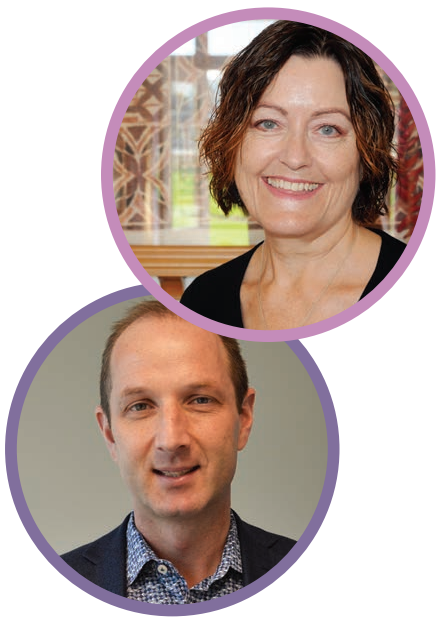
Kia ora from Karla and Paul
Haere mai, warm Pacific greetings, and welcome to the final update of 2022 on our Mental Health and Addiction Change Programme.
Thank you for participating – whether you attended a workshop or sent us your feedback this year, your contributions have moved us closer to achieving our vision of a mental health and addiction system that is more equitable, accessible, and closer to home.
Below, we’ll be giving an update on the work taking place around the Choice and Partnership Approach (CAPA) model within the Community Child and Adolescent Mental Health workstream, as well as sharing the finalised Model of Care for the new adult acute inpatient facility at Hutt Valley.
We’ve come a long way this year and 2023 will be a busy and significant one across all our workstreams. Early next year we will be sharing a high-level concept with you, which sets out a model for a new way of working for our adult community mental health and addiction services. It has been developed following initial consultation with stakeholders across the district, including Māori, Pacific peoples, lived experience representatives, disabled people, and the community.
This piece of work will signify a significant change in the delivery of adult community mental health and addiction services across the district. The consultation will occur in two phases, so please keep an eye on our communications channels for the proposal and details of ways in which you can have your say.
Please reach out to mhachange@ccdhb.org.nz if you have any questions or would like to give feedback.
Ngā mihi o te Kirihimete me te Tau Hou – Season's greetings for Christmas and the New Year.
Karla Bergquist Paul Oxnam
Executive Director, MHAIDS Executive Clinical Director, MHAIDS
 Acute Inpatient Mental Health
Acute Inpatient Mental HealthModel of Care finalised
We are excited to present the new model of care for adult acute inpatient services, which will be used to inform the design of the new acute inpatient unit in the Hutt Valley. More importantly, the model of care will be applied across both our adult acute inpatient units in Wellington and the Hutt Valley, supporting the vision of integrated care for people across the district.
Thank you to everyone who has helped shape this document, either by attending one or more workshops, or providing feedback.
The model of care will be a ‘living document’ that can be revisited as the thinking evolves and we work with our partners to refine our approach.
Read it here.
Next, we will work to establish an implementation plan that will see the model of care come alive with operational detail, including defining how it aligns with existing projects such as Towards Zero Seclusion: A Safe Journey for All.
The new build design working groups have finished their initial ‘concept’ phase and will move into the next ‘preliminary' phase early in the new year. This will build on the information gathered in the concept phase. The design user groups are the opportunity for the staff to work with the design team to ensure that the building will be fit for purpose.
/a-camhs-line.png) Community Child and Adolescent Mental Health
Community Child and Adolescent Mental Health
Choice and Partnership Model explored

In early December a full CAMHS sector CAPA day took place. This was well-attended by kaimahi from across our services and was underpinned by the active engagement of the CAMHS team leaders (pictured above), some of whom are experts in the delivery of CAPA. The day highlighted some opportunities for further development at an individual team level and this will underpin the project’s next steps. Thank you to those of you who were able to attend.
Work also continues with youth sector stakeholders around exploring opportunities to build a connected younger persons community network across the district.